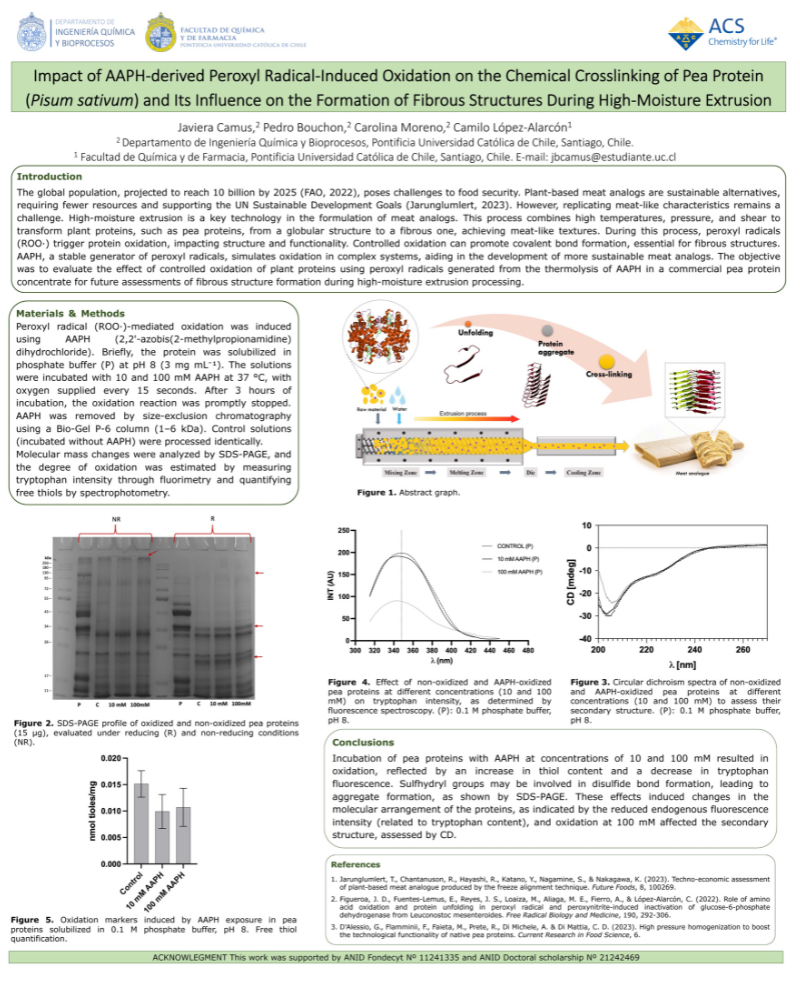
The global population, projected to reach 10 billion by 2025 (FAO, 2022), poses challenges to food security. Plant-based meat analogs are sustainable alternatives, requiring fewer resources and supporting the UN Sustainable Development Goals (Jarunglumlert, 2023). However, replicating meat-like characteristics remains a challenge. High-moisture extrusion is a key technology in the formulation of meat analogs. This process combines high temperatures, pressure, and shear to transform plant proteins, such as pea proteins, from a globular structure to a fibrous one, achieving meat-like textures. During this process, peroxyl radicals (ROO·) trigger protein oxidation, impacting structure and functionality. Controlled oxidation can promote covalent bond formation, essential for fibrous structures. AAPH, a stable generator of peroxyl radicals, simulates oxidation in complex systems, aiding in the development of more sustainable meat analogs. The objective was to evaluate the effect of controlled oxidation of plant proteins using peroxyl radicals generated from the thermolysis of AAPH in a commercial pea protein concentrate for future assessments of fibrous structure formation during high-moisture extrusion processing.